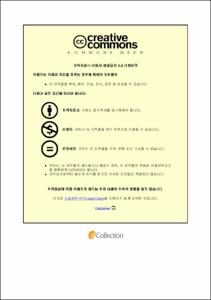Ulsan Univ. Repository
Thesis
General Graduate School
Mechanical & Automotive Engineering
2. Theses (Ph.D)
Experimental investigation on non-evaporative spray and combustion characteristics of gasoline-biodiesel blends under GCI conditions
- Abstract
- This research focused on the phenomena of the spray development process and combustion characteristics of gasoline-biodiesel blended fuels when used in the gasoline compression ignition (GCI) engine conditions. The experiments include the phase stability and physical/chemical property of gasoline-biodiesel blends. In addition, the effect of biodiesel concentration in the blends on the spray behaviors and combustion characteristics are clarified. The test fuels, commercial gasoline and diesel (sold in Korea) and pure biodiesel (soybean methyl ester) from the industrial plant, were used in the experiment. The gasoline-biodiesel blends were mixed by increasing the percentage of biodiesel. The experiments could be divided into three sections.
Firstly, a ternary phase diagram was utilized to indicate the effect of ambient temperature on the solubility. In this part, the major test fuels were commercial gasoline and biodiesel; however, diesel was also studied for clear understanding. The test fuels were separated into two groups which are gasoline-diesel-biodiesel and gasoline-ethanol-biodiesel, which were varied each fuel concentration from 0 to 100% by volume. Then, the selected GBs with the biodiesel concentration of 5, 10, 15 and 20% were analyzed their physical and chemical properties, especially for the lubricity. Neat gasoline, biodiesel and diesel were also tested as the reference.
Secondly, macroscopic spray visualization was observed to study the phenomena and characteristic of free spray in a constant volume combustion chamber (CVCC). The Schlieren, shadowgraph photography and particle image velocimetry / tracer-based planar laser-induced fluorescence (PLIF-PIV) technique were performed to obtain the image. Image processing via MatLab software was utilized to analyze the phenomena and characteristics such as spray penetration, cone angle, the speed of spray, etc. The important parameters which strongly affect the fuel spray consisted of injection pressures and ambient pressures were varied.
Finally, the effects of the blended fuels on combustion characteristics and emissions based on GCI combustion were investigated with varying injection pressures and injection durations. A modified single-cylinder diesel engine (498cc displacement) with a compression ratio of 19.5, was implemented with the GCI concept. Heat release rate, in-cylinder temperature, mass fraction burned, etc. were analyzed by mean of in-cylinder. The exhaust emissions were also measured such as CO, NOx and THC.
The ternary phase diagram showed that all blends had the good solubility at ambient temperature ≥ 5 C. The lubricity of GB mixed 5% of biodiesel was improved and better than the diesel standard (<400 m). The spray visualization results showed that high biodiesel concentrations are not significantly affected to spray behavior and characteristics. Their behaviors are similar to diesel sprays. The combustion characteristic showed that the gasoline-biodiesel blends resulted in slightly lower performance than pure diesel due to its ignition delay time. However, the exhaust emissions tend to decrease due to low-temperature heat release. Relative to commercial diesel, exhausts emissions (exclude NOX) were significantly decreased in some conditions when using GBs blends.
Gasoline blended with 5% biodiesel can be used in the GCI engine without phase separation and the failure of the high pressure injection system due to the excellent fuel lubricity. In addition, when using it with the common rail injection system could improve better air-fuel mixing process thus enhancing the combustion phenomena. However, the injection pressure should be optimized to prevent the occurrence of cavitation and worse combustion.
- Issued Date
- 2019
- Awarded Date
- 2019-08
- Type
- Dissertation
- Affiliation
- 울산대학교
- Department
- 일반대학원 기계자동차공학과
- Advisor
- Prof. Lim, Ock Taeck
- Degree
- Doctor
- Publisher
- 울산대학교 일반대학원 기계자동차공학과
- Language
- eng
- Rights
- 울산대학교 논문은 저작권에 의해 보호받습니다.
- Appears in Collections:
- Mechanical & Automotive Engineering > 2. Theses (Ph.D)
- 파일 목록
-
-
Download
 200000224399.pdf
기타 데이터 / 9.79 MB / Adobe PDF
200000224399.pdf
기타 데이터 / 9.79 MB / Adobe PDF
-
Items in Repository are protected by copyright, with all rights reserved, unless otherwise indicated.